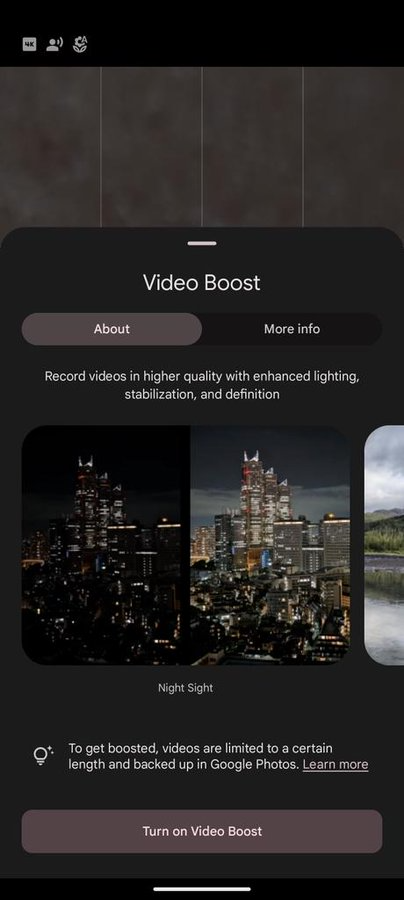RIP Pixel 8 (Oct 2023-Mar 2024).
— TechOdyssey | #TechRejects (@AdamJMatlock) March 7, 2024
Will not be getting Gemini AI, due to “hardware limitations”. Google just killed this phone. So much for 7 years of support. Can’t even get the first iteration of Googles phone AI model. pic.twitter.com/RYQnwa0aVY
It’s only been five months after its launch, yet the Google Pixel 8 seems to be headed for a premature demise – at least in terms of the AI innovation and flagship status Google marketed it with.
Here’s the thing. The Google Pixel 8 is already a weaker proposition compared to its Pro sibling in several key departments like camera, display, battery and memory, but Google feels that’s not enough. In a move that can only be described as a slap in the face to loyal customers, Google is crippling its latest flagship Pixel 8 phone further. The company recently confirmed that Gemini Nano, a cornerstone of its AI-driven features, will not be supported on the Pixel 8 due to “hardware limitations.” This announcement has sparked outrage and a sense of betrayal in the Pixel community, raising serious questions about Google’s commitment to its own product.
Gemini Nano is Google’s on-device AI model that powers a suite of intelligent features such as the Recorder app’s Summarize capability and Gboard’s Smart Reply. The model was a significant selling point for the Pixel 8 Pro and framed as a major step forward in Google’s AI ambitions. Its absence on the Pixel 8 is a glaring omission, especially considering Google’s marketing for the Pixel 8 line has centered heavily on its AI capabilities.

Google’s excuse for this debacle is “hardware limitations” on the Pixel 8. However, this is a flimsy justification that doesn’t hold water. The only significant hardware difference between the Pixel 8 and Pixel 8 Pro is 4GB of RAM. Google argues this RAM deficit is the issue, yet the entry-level Samsung Galaxy S24 manages to run a similar on-device language model for Google Messages’ Magic Compose feature while also sporting 8GB of RAM. This raises severe doubts about Google’s sincerity and exposes a potential bait-and-switch tactic that leaves Pixel 8 users feeling shortchanged, deceived and with no choice but to switch to the Pixel 8 Pro in order to get the best of Gemini Nano’s on-device AI features.
Broken promises and user backlash
Google heavily championed the Pixel 8 series as the definitive AI smartphones. The phone even won the best smartphone of the year award at the MWC 2024 not because of its hardware, but likely because of its smart use and implementation of AI features. However, the lack of Gemini Nano support not only undermines this claim but also raises questions about the longevity of the Pixel 8 itself. Google promises 7 years of software support for the Pixel 8, but what does that mean if major AI-powered features are unavailable? Will the Pixel 8 become an obsolete eyesore in the rapidly evolving world of AI-powered smartphones? At some point my colleague Dwayne Cubbins even manifested a world with modular Pixel phones owing to this promise, but I doubt he’ll be singing the same song after this development.
The fallout from Google’s decision has been swift and fierce. Many Pixel 8 users are outraged and feel betrayed by Google’s deceptive marketing (1,2,3,4). The once-enthusiastic Pixel community is now riddled with disappointment and skepticism about Google’s commitment to its flagship devices.
So what now?
Google has effectively crippled the Pixel 8 by withholding a crucial AI feature that was heavily marketed as a major selling point for the entire Pixel 8 lineup. It begs the question: is the Pixel 8 truly a flagship device as Google would have us believe, or is it merely a half-baked attempt to capitalize on the promise of AI without delivering on the substance?
Google needs to step up and be transparent about this situation. Vague references to “hardware limitations” only serve to fuel further distrust. If Google wants to salvage its reputation and regain the trust of its loyal Pixel users, it needs to provide a clear, detailed explanation of why the Pixel 8 cannot support Gemini Nano and offer a potential solution or roadmap to address this glaring shortcoming.

As it stands, the Google Pixel 8 is arguably a dead phone walking, especially when viewed from on-device AI lenses. Google’s handling of this situation has cast a long shadow over the future of the Pixel 8. If anything, the company may find that winning back customers disillusioned by this debacle won’t be as simple as the next Pixel Feature Drop. But only time will tell.
That said, what are your thoughts on the claim that the Pixel 8 hardware is the reason the phone isn’t getting on-device AI features through Gemini Nano? Share your thoughts in the comments and poll below.


